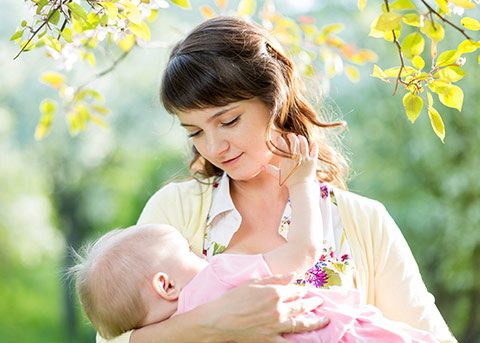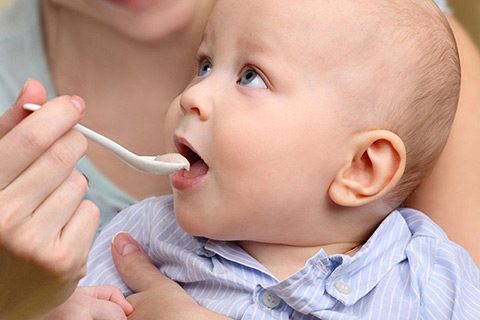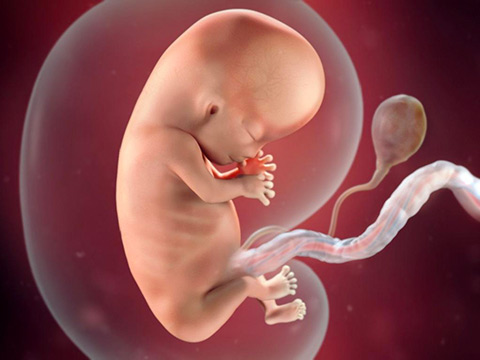Breastfeeding a newborn
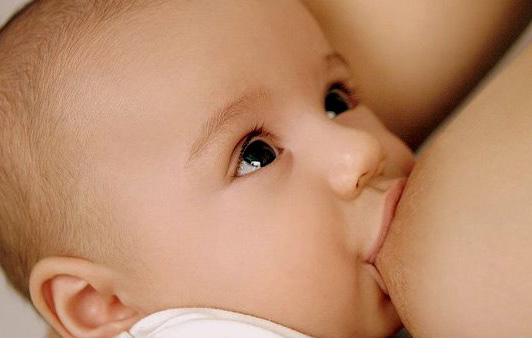 You probably know that breastfeeding is one of the best gifts you can give to your newborn baby. But if you’re a first-time mom, you might be feeling uneasy about nursing. Relax! Babies aren’t exactly born knowing how to breastfeed either, but the two of you will soon fall into a comfortable routine and both will be satisfied. Breastfeeding a newborn should begin as soon as possible after birth, usually within the first hour. The following breastfeeding guidelines will help alleviate some of your concerns and put your mind at ease.
You probably know that breastfeeding is one of the best gifts you can give to your newborn baby. But if you’re a first-time mom, you might be feeling uneasy about nursing. Relax! Babies aren’t exactly born knowing how to breastfeed either, but the two of you will soon fall into a comfortable routine and both will be satisfied. Breastfeeding a newborn should begin as soon as possible after birth, usually within the first hour. The following breastfeeding guidelines will help alleviate some of your concerns and put your mind at ease.
The first time you hold your baby in your arms is going to be a wonderful experience for you. Although, the first time you try to nurse may make you nervous learning how to nurse and actually nursing will relieve your tension. You will find that once you discover the proper way to hold your baby it is all down hill from there. One of the key terms and most important things for you and your baby to learn is how to latch. This is when your baby learns how to latch onto your nipple for proper sucking.
Proper breastfeeding latch
To encourage your baby to latch on, touch your nipple to the center of your baby’s mouth. When your baby opens her mouth pull her forward toward you. Your baby will be in the correct position if her mouth and gums are around the areola, not just the nipple. You should make sure that your baby’s mouth and nose are facing your nipple and not just your breast. If you do this correctly you will find that your belly and your baby’s belly will be facing each other.
If your baby is not opening her mouth to your breast you may find that if you tickle your baby’s lower lip with your finger he or she should open wide. When your baby opens her mouth place your breast inside your baby’s mouth. When your baby has latched on you will feel a tugging. At this point your baby’s mouth should be covering a large part of your areola. This is the darker portion around your nipple.
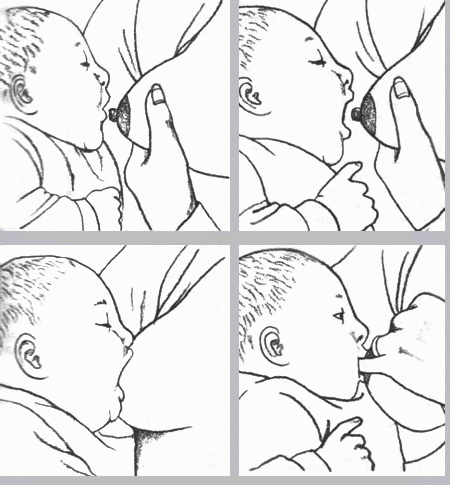
You will know that your baby is truly eating if you watch to see if your baby swallows. When you feel it is time to remove your baby from your breast simply insert your finger into the size of your baby’s mouth and release her mouth from your breast. Please do not pull your baby from your breast because it will hurt you as well as damage your sensitive tissues around your breast.
It is important to find a comfortable position that supports your baby’s back and bottom. Try lying down on your side with your baby facing you. If you would rather sit up, hold your baby in cradle position with her head in the crook of your arm and her body facing you.
How often to breastfeed?
You will find that time is not a factor with babies who are breast-fed. It is important to remember that all babies are different and even if this is your first fourth or second baby each one will nurse different than the other. After a while you will notice that your baby will have an approximate time that he or she will spend on each breast. It can be anywhere from ten to thirty minutes per breast. Newborns will feed approximately ten to twelve times each day in the beginning (every two to three hours).
One of the most common misconceptions is that these feeding will be equally spaced out. Sometimes your baby will nurse every hour for a few hours and then sleep for several hours, other times it will be evenly spaced and predictable, all within the same day. When the baby signals that they are finished burp them, gently rub their back, perhaps even change their diaper. Then offer the second breast.
Remember to always begin breastfeeding with the same breast you ended with, this will keep milk production consistent between your breasts. While you are in the hospital, you should spend as much time as possible with your baby. “Rooming-in” has been shown to help make breastfeeding more successful.
Is baby getting enough milk?
This is the most common concern for breastfeeding mothers. You will know if your baby is getting enough nourishment by paying attention to her signals. You can monitor your baby’s intake by the number of wet diapers he or she produces. In the first two or three days, your baby will be wetting about three diapers a day with pale yellow urine. Don’t worry about your milk production in the first few days. Your body makes colostrum to provide nutrition for your baby until your milk increases in volume, which usually happens three to four days after birth. By the fifth day, your baby should be wetting at least six to eight diapers every twenty-four hours.
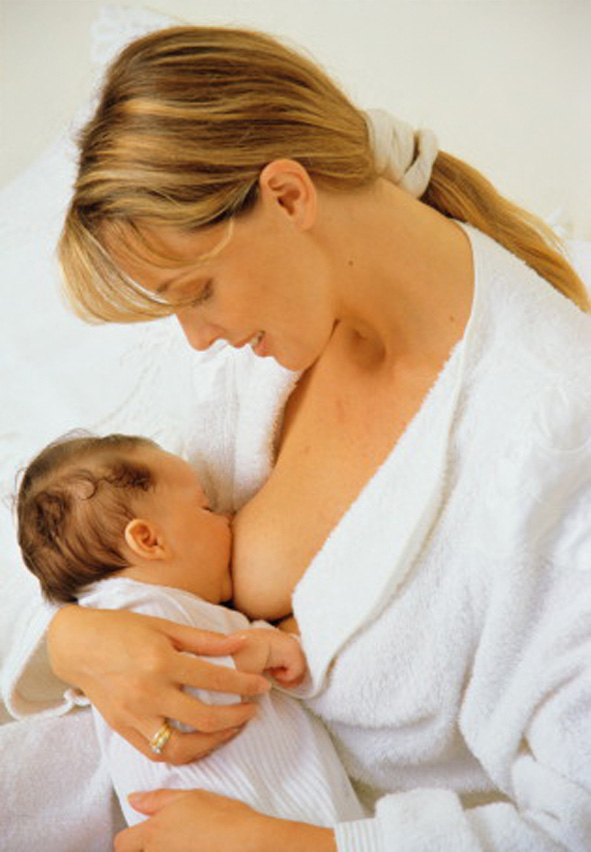 You should notice if your baby is eating between ten and twelve times a day and being content for at least one or two hours between most feedings. If you are unsure ask your healthcare provider.
You should notice if your baby is eating between ten and twelve times a day and being content for at least one or two hours between most feedings. If you are unsure ask your healthcare provider.
The more you feed your baby the more milk you will produce. That is why it is important to nurse your baby as often as they wish to eat, particularly in the beginning when you are establishing milk supply.
When you decide to breast-feed it is important to not only educate yourself but to educate those around you what to expect. By providing this kind of knowledge beforehand, you are ensuring that your support network will be in place and ready to help you in a positive manner.
Why breastfeeding a newborn is so important?
During the first few days your breast milk will give your child special antibodies to help protect against infections and also to help your baby’s digestive system begin working. This miracle substance is called colostrum and can only be given to your baby for a few days after birth until your milk comes in.
Another great thing about breast-feeding is that many children who are breast-fed have a lower incidence of allergies, infections, and stomach problems than bottle-fed babies do. It is also true that breast fed babies can digest breast milk better than formula fed babies.
So far, all of the pros from breast-feeding have been for your baby’s benefit, but in actuality you too will receive benefits of breast-feeding. An important benefit for you is one that at first may cause some uterine cramping. When your baby begins to suckle you may notice some cramping or tightening of your uterus. This is due to a hormone that is released called oxytocin. Oxytocin will help your uterus to contract back to its prepregnant size as well as to trigger the flow of your breast milk. Another benefit is that mothers who breast-feed also loose their pregnancy weight faster than mothers who bottle-feed do.
After reading all of the benefits of breast-feeding, to both you and your baby, there is one more very important benefit. You and your baby will begin to develop a special bond. Some mothers even report a physical reaction to hearing their baby’s cry, their breasts tingle and they find that they have a need to nurse. Today, when asked, almost ninety percent of women want to breast-feed. In actuality, only about sixty five percent of moms will begin to nurse and even less will continue to breast-feed. Give it a try, both you and your baby will benefit!



